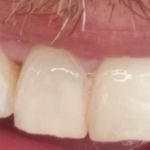What is Tooth Hypersensitivity and How to Treat It Effectively
- What is Tooth Hypersensitivity?
- Causes of Tooth Sensitivity
- How to Treat Tooth Hypersensitivity
- Preventing Tooth Sensitivity
- Conclusion and Final Thoughts
What is Tooth Hypersensitivity?
Tooth hypersensitivity, also known as tooth sensitivity, refers to the sharp pain or discomfort felt in the teeth when exposed to hot, cold, sweet, or acidic substances. This condition is quite common and can occur due to various factors, often making everyday activities like eating or drinking uncomfortable.
Tooth hypersensitivity can be short-lived or chronic, with discomfort ranging from mild to severe. Understanding its causes and learning how to treat it effectively can help improve your oral health and quality of life.
Causes of Tooth Sensitivity
Tooth sensitivity can occur due to a variety of reasons, and it's essential to identify the root cause to treat it effectively. Some of the most common causes include:
- Worn Enamel: The protective layer of enamel on your teeth can wear down over time, exposing the sensitive underlying layer known as dentin.
- Gum Recession: When gums recede, they expose the tooth roots, which are not covered by enamel, making them more susceptible to sensitivity.
- Tooth Decay: Cavities and untreated dental issues can cause discomfort when the sensitive areas of the tooth are exposed.
- Teeth Grinding: Habitual grinding can wear down enamel and expose sensitive areas.
- Acidic Foods and Beverages: Frequent consumption of acidic foods like citrus or soda can erode enamel and increase tooth sensitivity.
Identifying the specific cause of your tooth sensitivity is crucial in determining the most effective treatment plan.
How to Treat Tooth Hypersensitivity
Once you understand the cause of your tooth sensitivity, several treatment options can help alleviate the pain and discomfort. Here are some effective ways to treat hypersensitive teeth:
- Desensitizing Toothpaste: Special toothpaste designed for sensitive teeth contains compounds that help block the pain signals to your nerves.
- Fluoride Treatment: A fluoride treatment applied by a dentist can strengthen enamel and reduce sensitivity.
- Sealants and Bonding: Your dentist may use sealants to cover sensitive areas and prevent pain triggers.
- Root Canal Treatment: If the sensitivity is severe, a root canal may be necessary to remove nerve tissue and resolve the issue.
It's important to consult with a dental professional to determine the best treatment option for your specific case.
Preventing Tooth Sensitivity
While treatments can help manage tooth hypersensitivity, preventing it from occurring in the first place is equally important. Here are some preventive measures to keep in mind:
- Maintain Good Oral Hygiene: Brush and floss regularly with a soft-bristled toothbrush to avoid damaging enamel and gums.
- Limit Acidic Foods: Reducing your intake of acidic foods and drinks can help protect your enamel from erosion.
- Use a Mouthguard: If you grind your teeth at night, wearing a mouthguard can prevent enamel wear and reduce sensitivity.
- Visit Your Dentist Regularly: Regular check-ups can catch problems early, ensuring that treatment is provided before sensitivity worsens.
By adopting these habits, you can significantly reduce your risk of developing tooth hypersensitivity and maintain your overall oral health.
Conclusion and Final Thoughts
Tooth hypersensitivity can be a frustrating and painful condition, but with the right treatments and preventive measures, you can find relief and maintain your oral health. If you're dealing with tooth sensitivity, consult with your dentist to determine the best course of action for your specific situation.
If you're looking for effective solutions for tooth hypersensitivity, consider trying specialized toothpaste or seeking professional treatment from a dentist. Take control of your oral health and say goodbye to discomfort today!







 Maui Whitening Orlando4.0 (32 review)
Maui Whitening Orlando4.0 (32 review) Bloomington Southside Dental Care3.0 (26 review)
Bloomington Southside Dental Care3.0 (26 review) Christiana Dental Center4.0 (650 review)
Christiana Dental Center4.0 (650 review) Carolina Dental Arts - New Bern Ave4.0 (152 review)
Carolina Dental Arts - New Bern Ave4.0 (152 review) Equitas Health Short North Medical Center3.0 (96 review)
Equitas Health Short North Medical Center3.0 (96 review) Prosthodontics of Madison - Kendra Schaefer, DMD & Christine Roenitz, DMD4.0 (25 review)
Prosthodontics of Madison - Kendra Schaefer, DMD & Christine Roenitz, DMD4.0 (25 review) The Importance of Oral Health Education During Pregnancy for a Healthy Pregnancy
The Importance of Oral Health Education During Pregnancy for a Healthy Pregnancy Best Tips for Brushing Your Teeth Properly for Healthy Gums: Essential Techniques for Oral Health
Best Tips for Brushing Your Teeth Properly for Healthy Gums: Essential Techniques for Oral Health Why Skipping Dental Checkups Can Lead to Bigger Oral Health Problems
Why Skipping Dental Checkups Can Lead to Bigger Oral Health Problems Advantages of Porcelain Dental Restorations
Advantages of Porcelain Dental Restorations How Can Diabetes Cause Tooth and Gum Problems? Preventing and Managing Oral Health Issues
How Can Diabetes Cause Tooth and Gum Problems? Preventing and Managing Oral Health Issues Healthy Habits for Promoting Good Oral Health and Hygiene: Tips for a Healthy Smile
Healthy Habits for Promoting Good Oral Health and Hygiene: Tips for a Healthy Smile